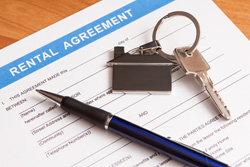Much has been said about the planned restrictions on foreign property ownership in South Africa, but not many landlords know that there are already certain limits on letting properties to non-South Africans.
 Even more to the point, though, says Harris, the Act makes it a criminal offence to let a property to an “illegal foreigner” – meaning any non-South African who is not in possession of the correct documentation.
Even more to the point, though, says Harris, the Act makes it a criminal offence to let a property to an “illegal foreigner” – meaning any non-South African who is not in possession of the correct documentation.It is important to know this, says Chas Everitt Property Rentals CEO Greg Harris, as the interest in renting SA properties continues to grow, not only among European “swallows” seeking a respite from the northern winters, but also among “captains of industry” hailing from all over the world.
Many global companies now see SA as the most attractive gateway to Africa and are sending executives and professionals here for a few years at a time to set up and run local operations as their continental headquarters, says Harris. “On the other hand, many top business people from Africa also want to have a base here so that they can interact easily with their international counterparts.
“And on top of that, SA is one of the top 10 diplomatic centres in the world in terms of the number of embassies, high commissions and consulates, which adds to the non-South African demand for rental properties.”
However, exciting as this is, he says landlords in SA need to be sure that they are not contravening the Immigration Act when letting their property to someone who is not a South African citizen.
This legislation defines a “legal foreigner” as a person in possession of either a valid visa that entitles them to study, work or do business in SA for a certain period, or a permanent residence permit approved by the Department of Home Affairs.
Even more to the point, though, says Harris, the Act makes it a criminal offence to let a property to an “illegal foreigner” – meaning any non-South African who is not in possession of the correct documentation. “Such a transaction is regarded, in terms of the Act, as the equivalent of aiding and abetting an illegal immigrant, and is thus a serious offence punishable on conviction by a fine or a jail term of up to 18 months.
“Consequently, any landlord who is approached by a prospective tenant who is not a South African should not only enquire whether this person is legally present in South Africa, but also obtain documentary proof of this before entering into any contract with them such as a lease.”
Alternatively, Harris says they should seriously consider appointing a managing agency geared up to check this documentation upfront, along with the tenant’s credit record and employment details, in order to lower both the financial and the legal risks for landlords.







